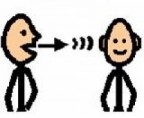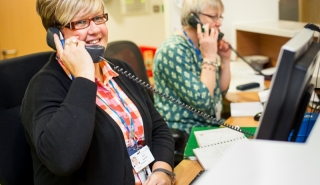In this section
Aphasia
What is Aphasia?
Aphasia is a language disorder that can make it hard to:
- talk
- understand
- read
- write

What causes Aphasia?
Aphasia is caused by damage to the brain.

This can happen because of:
- A stroke
- A head injury
- A brain tumour
- An infection
- Neurological conditions (such as dementia)
This damage happens in the part of the brain where words are stored. This can make it hard to get spoken or written words in and out.
Is there anything others can do?

-
Use short words and simple sentences - no jargon!
-
Speak slowly and clearly - don't shout!
-
Make sure you can get eye contact with the person you are communicating with, and try and be on the same height level.
-
Don't give too much information at once e.g. ask me to do/think about one thing at a time.
-
Use gesture, facial expression and body language to support your speech.
-
Always try and explain what is going to happen.
-
If you can use signs, pictures, symbols and objects to support your speech.
-
Give time for response
-
For people with reduced understanding offer choices e.g. would you like X or Y, or ask Yes/No questions e.g. would you like X
-
Be responsive to any attempts to communicate e.g. eye contact, vocalisations, body language etc.
To return to the Speech and Language Therapy home page click here.






